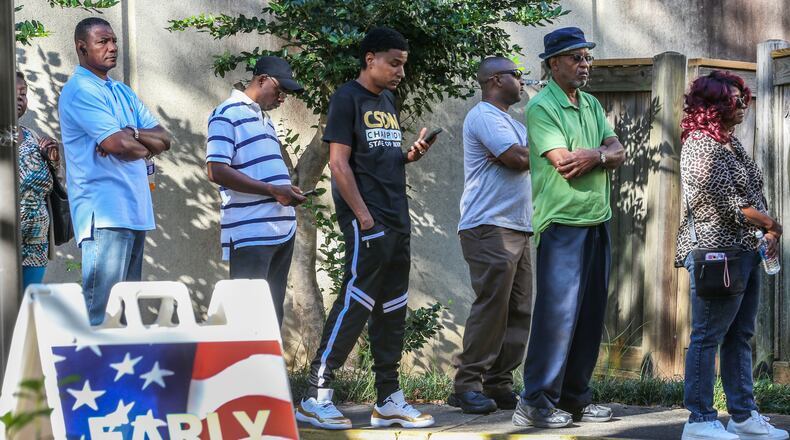The November general election did not go off flawlessly in Fulton County this November. But compared to the past two? It was downright irreproachable.
"I feel really proud of the way the election turned out," said Richard Barron, Fulton's director of Elections and Registration. "As far as I'm concerned, this is the smoothest election we've had since I've been here."
Before Barron took over the office, Fulton’s 2008 and 2012 presidential elections were, in many ways, a mess.
In 2008, election officials were still counting absentee ballots 53 hours after the end of voting.
In 2012, workers were still printing voter lists and delivering them to precincts hours after the polls had opened. Some residents were turned away because their names weren’t on the lists, while 9,575 voters were forced to cast provisional ballots.
All told, the secretary of state fielded more than 100 complaints about irregularities at polling places. The county paid fines of $180,000.
This year, in an effort to combat its reputation and improve the voting process, Fulton County expanded its early voting. It allowed residents to check online to see how long lines were at voting locations. And the county spent $20,000 to rent tablet computers for pollworkers to walk the lines on election day to ensure that voters were at the right precinct. That effort was meant to minimize the number of provisional ballots that were cast.
The changes made for an election with minimal issues.
The efforts were noticed. Earlier this month, the Center for Civic Innovation in Atlanta gave Fulton County an award for innovation in government as a result of its efforts to make voting more effective.
“It’s satisfying,” Barron said. “It shows we’ve come a long way since the previous several presidential elections.”
Here were the issues: A handful of voters have been accused of casting their ballots twice; once during early voting and again on election day. A voter advocate claimed some voters were denied provisional ballots, though Barron said the reports were unconfirmed.
And a mailer that was sent to the household of each registered voter sometimes directed voters to the wrong voting location, because of a mixup that updated addresses if residents had moved.
“The bad precinct information wasn’t because of a dysfunctional environment, it was because of a vendor,” Fulton Chairman John Eaves said. “We’re just in a much better position right now.”
And the work paid off, Barron said. The number of provisional ballots in 2016 was down 80 percent over 2012.
"I'm just happy to have it behind me," Barron said. "We can move on from all the questions from 2012 and move forward."
About the Author
Keep Reading
The Latest
Featured




